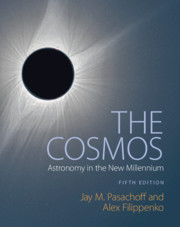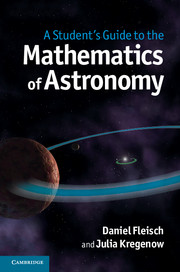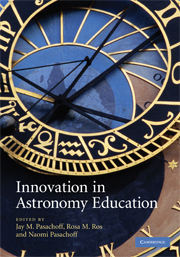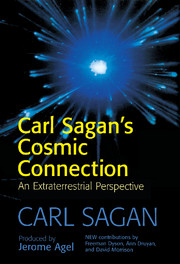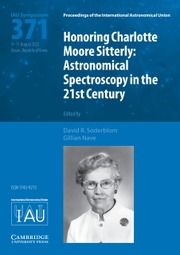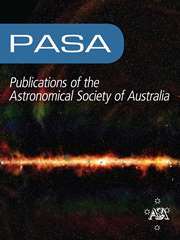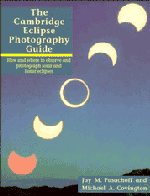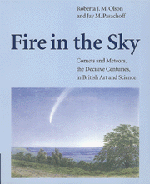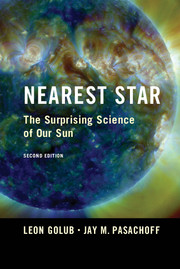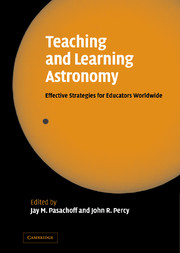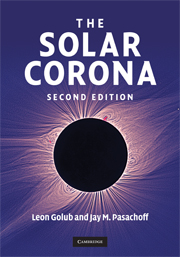The Cosmos
Astronomy in the New Millennium
5th Edition
$79.99 USD
- Authors:
- Jay M. Pasachoff, Williams College, Massachusetts
- Alex Filippenko, University of California, Berkeley
- Date Published: June 2019
- availability: This ISBN is for an eBook version which is distributed on our behalf by a third party.
- format: Adobe eBook Reader
- isbn: 9781108373258
Find out more about Cambridge eBooks
$
79.99 USD
Adobe eBook Reader
Other available formats:
Paperback
Looking for an inspection copy?
This title is not currently available on inspection
-
The fifth edition of The Cosmos: Astronomy in the New Millennium provides you with the fundamentals of astronomical knowledge that have been built up over decades, with an expanded discussion of the incredible advances that are now taking place in this fast-paced field, such as New Horizons' flyby of Pluto, exoplanets, 'dark matter', and the direct detection of gravitational waves by the Laser Interferometer Gravitational-Wave Observatory (LIGO). Written in a clear and easily understandable style, this textbook has been thoroughly revised to include updated data and figures, new images from recent space missions and telescopes, the latest discoveries on supernovae, and new observations of the region around the four-million-solar-mass black hole at the center of our Milky Way Galaxy. A rich array of teaching and learning resources is available at http://thecosmos5.com. The website is regularly updated to include the latest discoveries and photographs in the field.
Read more- Discussions of recent discoveries - such as New Horizons' flyby of Pluto, exoplanets, 'dark matter', and the direct detection of gravitational waves by the Laser Interferometer Gravitational-Wave Observatory (LIGO) - engage students by offering real-life context to the fundamental scientific background
- Clearly written, this textbook is suitable for a one-semester course and assumes no specific background knowledge - math is boxed and easily read around
- Includes many pedagogical features, such as chapter introductions and summaries, various kind of boxes ('Star party', 'Figure it out', 'Lives in science' and 'A closer look'), and highlighted keywords, as well as a glossary and appendices at the end of the book for additional coverage on planets, stars, constellations, and nonstellar objects
Reviews & endorsements
'The Cosmos: Astronomy in the New Millennium, 5th edition, is simply the best-written, introductory astronomy textbook on the market. The instructor will use all of this book. It is comprehensive but brief enough that students' can be reasonably expected to read the entire text in the course of a semester.' Thomas Hockey, University of Northern Iowa
See more reviews'This book has been the cornerstone of my introductory astronomy teaching at Northwestern since 2004. The text is expertly written in an easy-to-understand manner with many helpful diagrams and beautiful images throughout. This latest edition is a real tour de force with thoroughly updated discussions of cutting-edge research topics ranging from exoplanets to gravitational waves.' David M. Meyer, Northwestern University, Illinois
'The authors strike a right balance between qualitative and quantitative aspects of astronomy which is required for students interested to learn the subject for the first time. This book contains material that is useful for both beginner and advanced students of astronomy.' Chinmoy Bhattacharjee, Rutgers University, New Jersey
'By leading with fundamental physics - light, energy and matter - Pasachoff and Filippenko efficiently set the stage for their modern and thorough coverage of astrophysical concepts and discoveries all the way to present issues in cosmology.' Brian R. Hill, Saint Mary's College of California
'… it should appeal as well to those who enjoy popular-astronomy books … Apart from the usual one-page table of contents just listing the chapters, an 11-page … detailed table of contents makes it easy to find what one is looking for … very highly recommended.' Phillip Helbig, The Observatory
'In the updated fifth edition of The Cosmos: Astronomy in the New Millennium, Professors Jay M. Pasachoff and Alex Filippenko give general readers and serious students a comprehensive overview of astronomical research, written in clear and accessible language accompanied with gorgeous high resolution photos and plentiful, well-placed graphs and charts … Pasachoff and Filippenko provide readers a clear demonstration of how to employ the scientific method, and the critical value of developing an understanding of the process and methods of scientific reasoning, as well as the value of studying astronomy the 'grandest laboratory of all'.' Miriam R. Aczel, Contemporary Physics
Customer reviews
17th Oct 2024 by UName-1178384
Great book for in introduction to astronomy. However I find it a shame that as an individual you are not able to get the solutions manual to the questions posed in the book. I cannot understand that. I now need to buy this as a PDF on the web.
Review was not posted due to profanity
×Product details
- Edition: 5th Edition
- Date Published: June 2019
- format: Adobe eBook Reader
- isbn: 9781108373258
- copublisher:
- contains: 409 b/w illus. 739 colour illus. 5 maps
- availability: This ISBN is for an eBook version which is distributed on our behalf by a third party.
Table of Contents
Preface
About the authors
1. A grand tour of the heavens
2. Light, matter, and energy: powering the Universe
3. Light and telescopes: extending our senses
4. Observing the stars and planets: clockwork of the Universe
5. Gravitation and motion: the early history of astronomy
6. The terrestrial planets: Earth, Moon, and their relatives
7. The Jovian planets: windswept giants
8. Pluto, comets, and space debris
9. Our Solar System and others
10. Our star: the Sun
11. Stars: distant suns
12. How the stars shine: cosmic furnaces
13. The death of stars: recycling
14. Black holes: the end of space and time
15. The Milky Way: our home in the Universe
16. A universe of galaxies
17. Quasars and active galaxies
18. Cosmology: the birth and life of the cosmos
19. In the beginning
20. Life in the Universe
Epilogue
Appendices
Selected readings
Glossary
Index.
A look at the pedagogical features...
What are the top 5 ideas students of Astronomy struggle with?
Sorry, this resource is locked
Please register or sign in to request access. If you are having problems accessing these resources please email [email protected]
Register Sign in» Proceed
You are now leaving the Cambridge University Press website. Your eBook purchase and download will be completed by our partner www.ebooks.com. Please see the permission section of the www.ebooks.com catalogue page for details of the print & copy limits on our eBooks.
Continue ×Are you sure you want to delete your account?
This cannot be undone.
Thank you for your feedback which will help us improve our service.
If you requested a response, we will make sure to get back to you shortly.
×
